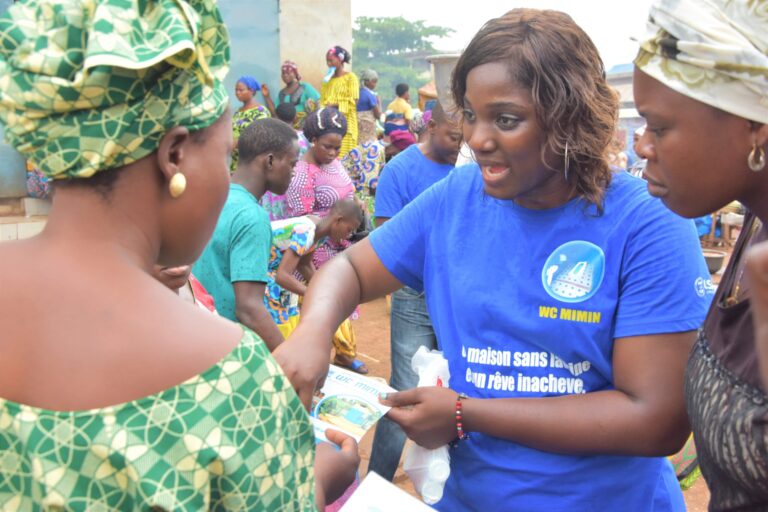By Bernard Elegbe, Director of Market Systems Strengthening, PSI Liberia; Roselyne Okwiri, Deputy Chief of Party, Western Kenya Sanitation Project, PSI Kenya; Daniel Tesfaye, Program Director, WASH, PSI Ethiopia; Dagim Demirew, Associate Director, WASH Business Development, PSI Ethiopia; Sanjay Singh, Director- Programs, PSI India
PSI works to build and strengthen systems that support sanitation markets’ long-term growth and resilience. Some of the ways PSI is creating sustainable sanitation solutions for people include strengthening the private sector, generating demand, engaging government actors, and introducing improved sanitation products into the market. Here are some examples of how we have put these strategies into practice:
Strengthening the private sector
In India, septic tank cleaning is done by unregulated, informal service providers, who usually collect and dispose of fecal sludge in drains or open areas that pollute communities and waterways. PSI India’s After the Flush project supported the formalization of these businesses and the organization of those businesses into an association recognized by the local government. Once formalized and subject to regulation, urban governing bodies gave association members access to government-owned treatment plans, resulting in a thirty-fold increase in safe fecal sludge disposal in project cities.

Generating Demand
PSI’s enterprise-led, door-to-door sales strategy and marketing activities drive demand through education and behavior change campaigns. This approach focuses on solving problems that customers identify and has been used effectively by PSI to sell toilets across Africa. As targeted marketing activities spread information and buzz about sanitation services throughout the community, customers receive household visits from enterprises trained in the problem-led sales approach. These sales visits convert demand into a purchase. Through the USAID Sanitation Service Delivery (SSD) project, PSI trained and mentored enterprises to execute professional door-to-door sales campaigns resulting in over 56,000 toilets sold in Benin, Cote d’Ivoire, and Ghana.

Engaging Government Actors
The Western Kenya Sanitation Project (WKSP) collaborates closely with eight regional county governments to co-implement a market-based sanitation approach. Coordinated engagement with the Departments of Water, Health, Trade, and Education is essential to understanding the needs and preferences of the end-user in accessing improved sanitation while building sustainable sanitation businesses. The community health volunteers lead in demand creation for sanitation products, linking potential customers with sanitation entrepreneurs who conduct home visits to gain a better understanding of the barriers to toilet purchase. With this information, WKSP makes iterations to the products and services offered and the content of the sales conversations. The results? More than 4,500 people have adopted improved sanitation over 6 months.

Introducing Improved Sanitation Products Into the Market
PSI Ethiopia’s Transform WASH project works with local technical training institutions, manufacturers, and small businesses to prototype, test, and introduce affordable and innovative sanitation products and services to the market. In addition, new product components, such as plastic slabs, are introduced through established supply chains. PSI supports small businesses to develop and market their service offerings to expand access to these products. So far, services provided through the project’s business partners have resulted in nearly 700,000 households gaining access to basic sanitation.
PSI’s work with governments, businesses, and consumers has helped to create lasting solutions to the sanitation crisis. Learn more about where and how PSI is transforming sanitation markets for sustained impact by vising the WASH page on our website. Check back soon for updates on our newest programs, USAID Mozambique Small Town Sanitation and USAID Liberia Countywide Sanitation Activity.





















